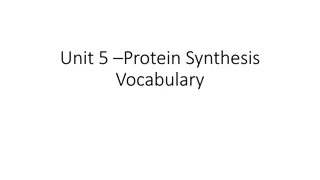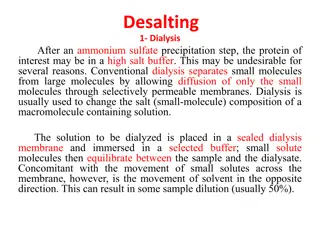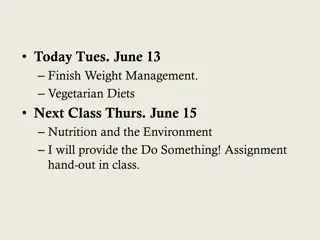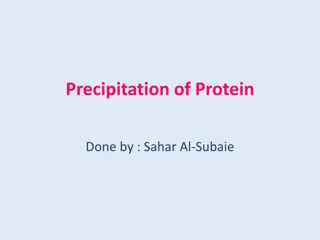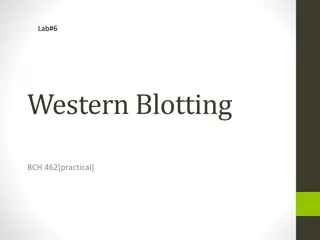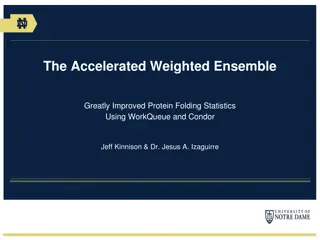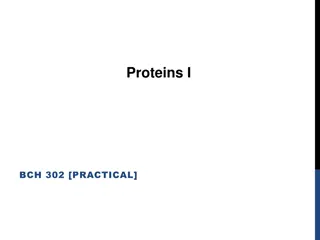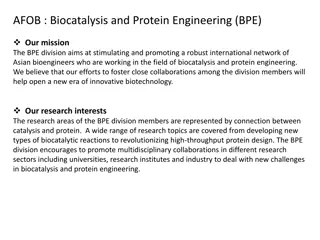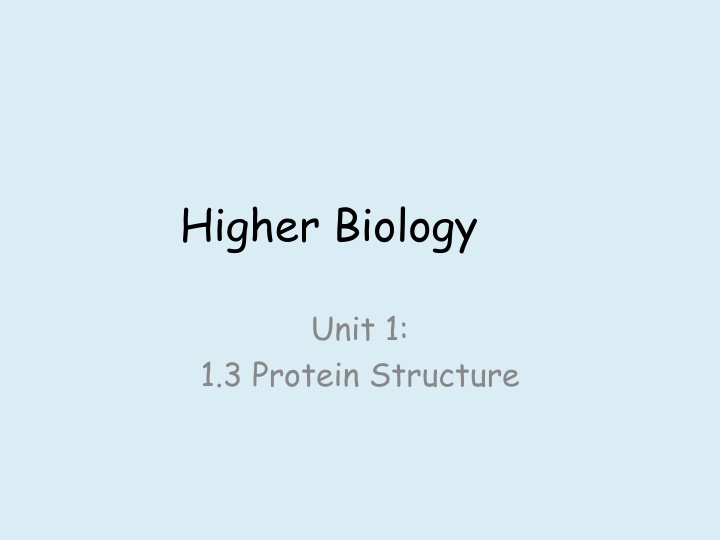
Protein Structure in Biology Studies
Explore the diverse structures and functions of proteins in biology, including fibrous and globular proteins. Learn about how proteins maintain their structure and the various roles they play in biological systems.
Download Presentation

Please find below an Image/Link to download the presentation.
The content on the website is provided AS IS for your information and personal use only. It may not be sold, licensed, or shared on other websites without obtaining consent from the author. If you encounter any issues during the download, it is possible that the publisher has removed the file from their server.
You are allowed to download the files provided on this website for personal or commercial use, subject to the condition that they are used lawfully. All files are the property of their respective owners.
The content on the website is provided AS IS for your information and personal use only. It may not be sold, licensed, or shared on other websites without obtaining consent from the author.
E N D
Presentation Transcript
Higher Biology Unit 1: 1.3 Protein Structure
Learning Intentions To be able to describe the different structures of proteins To be able to explain the functions of different proteins
Success Criteria I can describe the structures of different protein types I can explain how proteins maintain their structure
Proteins All proteins contain the chemical elements carbon, hydrogen, oxygen and nitrogen Proteins are long chains of amino acids held together by peptide bonds in a specific order Hydrogen bonds form between some amino acids in a protein causing it to become coiled or folded
Protein Structure Proteins fall into 2 distinct groups: 1. Fibrous proteins 2. Globular Proteins
Protein Function Proteins have a variety of functions depending on their shape They can act as enzymes, hormones, antibodies and structural proteins
Success Criteria I can describe the structures of different protein types I can explain how proteins maintain their structure










